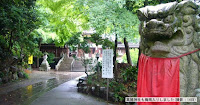...By Any Other Name: What To Call North Korea?

Watching North Korea get hammered by Portugal in the World Cup tonight, I was reminded of the trouble we had at NHK World: What to call that country? Officially, of course, it is (in English) Korea DPR while most of us just say, incorrectly, "North Korea." As far as they are concerned, there is no such thing as a "north" and a "south" Korea, since technically, they are still at war and not... but I digress.
At NHK in Shibuya, the news is broadcast in a number of languages, including Korean. We all had signs in our own languages, such as "Svenska" for the Swedish section and "Deutsch" for the German. The problem, then, was how to write "Korean" in the hangul script, that is used on the Korean peninsula. Since NHK aims for listeners both in the south and the north, so to speak, they had to find a term that was not controversial, even though it was not correct.
In South Korea, the language is most often called Hangungmal. There are also more formal ways of saying it. In the north, however, the language is most often called Chosŏnma. The languages are more or less the same, but the names refer to different ideas about nationhood and culture. Choson, for example, is another name for the Korean peninsula, while hangul is the name of the script that all Koreans use. There are also many dialects, and there is the issue of the Koreans living in China (in the Yanbian Korean Autonomous Prefecture) and other variations.
Back to NHK, where they broadcast news in Korean. You can read and listen to it here. On the page the language is written as 코리언 서비스 홈페이지.
Ask a Korean person, and that means "Korean Service Homepage" (using the Korean spelling for the English word "Korean" rather than getting into all that political... but I digress)
Ask a Japanese person, and they would call North Korea Kita Chosen, and South Korea would be Kankoku. But never, ever would they say Kita Chosen-go for the language. The usual term for the Korean language used in Japanese is Kankoku-go 韓国語.
And I don't think the North Koreans are too happy about that.
An interesting country, by any other name, in other words.
By the way, several Japanese players on the North Korean football team are Chongryon-affiliated Koreans born in Japan. This term, Chongryon, is also complex, to say the least. From wikipedia:
Chongryon members primarily consist of those who have retained their nationality registration of Joseon (Japanese: Chōsen), as opposed to those who have chosen to take up either Japanese or South Korean nationality. Joseon nationality was a legal definition that the Japanese government developed in the aftermath of World War II, when the government of Korean peninsula was in an undetermined state.The other main organization here is called Mindan, the Korean Residents Union In Japan, and consists of Zainichi Koreans who have adopted South Korean nationality. Among some 610,000 Korean residents in Japan who have not adopted Japanese nationality, 25 percent are members of Chongryon, and 65 percent are members of Mindan.
There are also Korean people in the former USSR, who refer to themselves as Koryo-saram 고려사람 or Goryeoin 고려인; 高麗人; literally, "people from Goryeo" and they call their language Goryeomal (고려말; 高麗말; Корё маль). I feel I have to mention that, since I live next to Koma in Saitama, and of course Koma is written as 高 麗 in Japanese. 1300 years ago, a bunch of Koreans were able to escape a civil war on the peninsula, and ended up in the hills of Saitama, where there is still a shinto shrine that you can visit (and lots of Korean tourists do). The head priest there, apparently, is a direct ancestor of the original immigrant families. They have a nice website: Koma Jinja

Comments